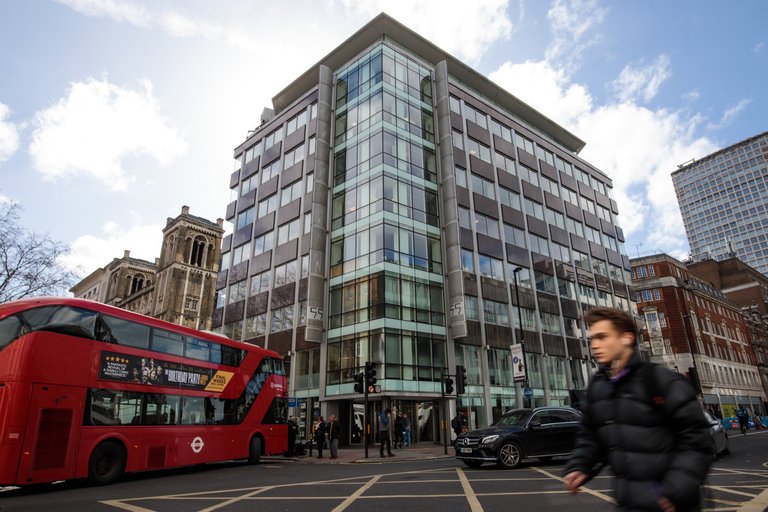By: Cecilia Kang – nytimes.com – MARCH 20, 2018
The headquarters of Cambridge Analytica in central London on Tuesday. The company, which worked on President Trump’s campaign, has faced a backlash after reports that it had obtained information on 50 million Facebook users. Jack Taylor/Getty Images
Federal regulators and state prosecutors are opening investigations into Facebook. Politicians in the United States and Europe are calling for its chief executive, Mark Zuckerberg, to testify before them. Investors have cut the value of the social networking giant by about $50 billion in the past two days.
They are all focused on the same thing: whether Facebook mishandled users’ data.
Facebook has built its highly profitable social network off its users, selling advertisements based on their ages, interests and other details. But the scrutiny over the company’s vast trove of personal data — following a report that a political consulting firm had improperly obtained information of 50 million users — is taking direct aim at that lucrative formula.
“Investors are reacting to fears of regulation and the consequences of regulation,” said Brian Wieser, a senior research analyst at Pivotal Research Group. “The scale of errors can only lead one to conclude these are systemic problems.”
So far, most of the social network’s top executives have been silent. Mr. Zuckerberg, its founder, and Sheryl Sandberg, his top deputy, have not made any public statements in recent days. The pair did not appear at an employee meeting on Tuesday in Menlo Park, Calif., where the company is based.
At the meeting, employees asked questions about the continuing internal investigation into the use of Facebook data by the political consulting firm Cambridge Analytica. The firm, which was tied to President Trump’s 2016 campaign, used the data to target messages to voters.
The meeting, which included Facebook’s deputy counsel, Paul Grewal, largely focused on the steps that Facebook was taking to ensure its data could no longer be misused by independent researchers, according to Facebook employees in attendance. Mr. Zuckerberg was expected to address employees on Friday, when the company holds an all-hands meeting.
The company has faced internal dissent over its broader role in spreading disinformation during the presidential campaign and its response to it. The tensions have prompted the planned departure of Alex Stamos, Facebook’s chief security officer, who plans to leave in August.
The pressure on Facebook has been building for years.
It started in the European Union, where regulators have taken an aggressive attitude toward Facebook and other American technology giants for their sway over the region’s 500 million people. The company has been the subject of several privacy investigations and charges by European regulators. Europe has approved a new privacy law, which takes effect in May, that will give users of Facebook, Google and other internet services more control over how their data is collected and what Silicon Valley companies know about them.
After the 2016 presidential campaign, lawmakers at home joined the chorus of critics, citing the company’s role in Russia’s disinformation efforts. The social network was one of the top tools used by Russians to spread false news, and the company’s executives have struggled to explain what happened and how they would prevent foreign interference in the future.
The Cambridge Analytica revelations have forced Facebook to scramble to assuage fresh concerns by regulators and lawmakers. The company is sending its representatives to Capitol Hill and arranging conversations with state attorneys general to try to answer questions about how the firm collected the information of Facebook users.
The social networking giant is also facing an investigation by the Federal Trade Commission, which is looking into whether Facebook violated an agreement with the agency, according to a person with knowledge of the inquiry.
The F.T.C. investigation is connected to a settlement the agency reached with Facebook in 2011 after finding that the company had told users that third-party apps on the social media site, like games, would not be allowed to access their data. But the apps, the agency found, were able to obtain almost all personal information about a user.
The current investigation has parallels. The information on the 50 million users was harvested in 2014 by an outside researcher, Aleksandr Kogan. Mr. Kogan, a professor at Cambridge University, paid users small sums to take a personality quiz and download an app, which collected private information from their profiles and from those of their friends. Facebook allowed that sort of data collection at the time.
To see the remainder of this article, click read more.
 Listen Online
Listen Online Watch Online
Watch Online Find a Station in Your Area
Find a Station in Your Area









 Listen Now
Listen Now Watch Online
Watch Online
